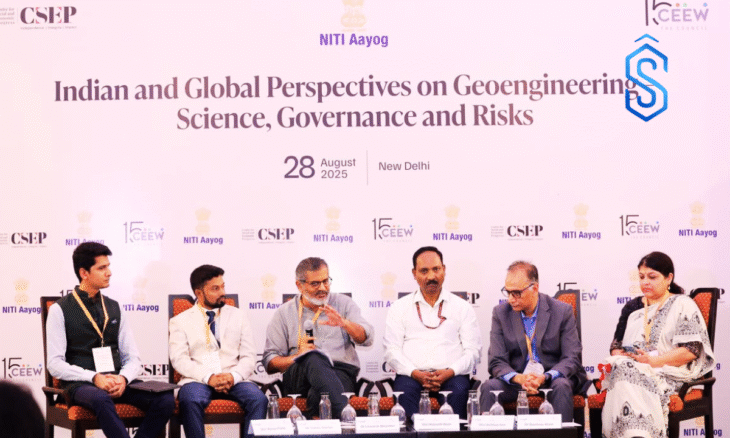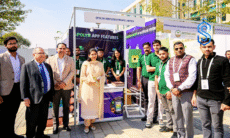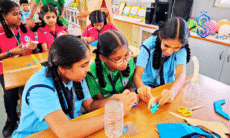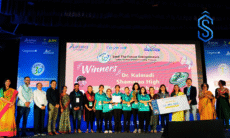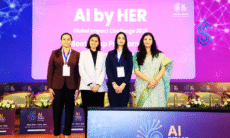New Delhi: The critical role of geoengineering in addressing climate change came under focus at a high-level workshop jointly hosted by NITI Aayog, the Council on Energy, Environment and Water (CEEW), and the Centre for Social and Economic Progress (CSEP).
The event, titled “Indian and Global Perspectives on Geoengineering – Science, Governance and Risks”, brought together policymakers, researchers, and international experts to deliberate on India’s preparedness in evaluating climate-altering technologies.
Also Read: Water-Tech Startups Invited to Join Akamai Acceleration and Incubation Programs
Geoengineering: Carbon Dioxide Removal and Solar Radiation Management
The workshop explored two central pathways of geoengineering:
- Carbon Dioxide Removal (CDR): Techniques such as biochar, enhanced rock weathering, ocean-based removal, and carbon capture with geological storage.
- Solar Radiation Management (SRM): Approaches like stratospheric aerosol injection and marine cloud brightening to reflect sunlight back into space.
Experts emphasized the importance of monitoring, reporting, and verification (MRV), storage integrity for geological options, safeguarding vulnerable communities, and designing governance systems for global cooperation.
B V R Subrahmanyam, CEO, NITI Aayog, stated that while mitigation remains the foremost global responsibility, India must also explore breakthrough technologies like geoengineering. He said, “India’s development journey is unprecedented – growing our economy while pursuing a low-carbon path. Climate change impacts us severely, and we must prepare for moonshot technologies to set the trend for sustainable development.”
Dr Arunabha Ghosh, Founder-CEO of CEEW, added that, “India must decarbonise without deindustrialising. While geoengineering research is expanding, governance must keep pace, with equity and climate justice central to decision-making.”
Dr Laveesh Bhandari, President of CSEP, stressed that “geoengineering raises questions of science, sovereignty, and society. India must engage early, invest in strategic research, and ensure democratic oversight, especially given our monsoon-dependent economy.”
Also Read: Innovative Projects StartUp Challenge Launched for Rooftop Solar and DRE Technologies
Call for Strategic Research and Governance
The deliberations concluded that while mitigation and adaptation remain India’s priority, evaluating the research, risks, and governance of geoengineering is crucial to ensure readiness for future decades.
Experts from NITI Aayog, CSEP, DST, CEEW, CSIR, IIT Delhi, and IIT Roorkee contributed insights, underscoring the need for collaborative frameworks and strategic investments in this emerging field.


